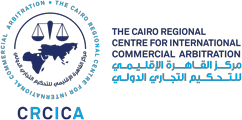الأدوات التعاقدية التقليدية لحماية المستثمرين الأجانب وسلطة الدولة التنظيمية
- الأربعاء، ٢٨ مايو ٢٠٢٥
- الساعة ٠٤:٠٠ مساءً
- مركز القاهرة الإقليمي للتحكيم التجاري الدولي (CRCICA)، القاهرة، مصر
- الترجمة الفورية باللغتين الإنجليزية والعربية
Our Sponsors
المقدمة
في ظل التطورات المتسارعة التي يشهدها الاقتصاد العالمي، أصبحت الحاجة إلى تحقيق توازن دقيق بين حماية الاستثمارات الأجنبية وضمان سيادة الدولة في التنظيم والتشريع أكثر إلحاحًا من أي وقت مضى.
على مدار العقود الماضية، صُمِّمت الاتفاقيات الاستثمارية الدولية بشكل رئيسي لحماية المستثمرين من التدخلات الحكومية التي قد تعرقل استثماراتهم. إلا أن المشهد القانوني اليوم بات أكثر تعقيدًا، إذ تسعى الدول إلى إعادة تأكيد حقها السيادي في التنظيم، خاصة في مجالات الصحة، البيئة، وحقوق الإنسان، حتى وإن كان لهذه التدخلات أثر على حقوق المستثمرين.
في المقابل، فإن التوجهات الحديثة تفرض أيضًا التزامات على المستثمرين أنفسهم، تتعلق بالمعايير البيئية، والمسؤولية الاجتماعية، والحوكمة الرشيدة، وهو ما يعكس تغيرًا في فلسفة العلاقة بين المستثمرين والدول.
يهدف هذا المؤتمر إلى استكشاف سُبل تحقيق التوازن المنشود بين حماية الاستثمارات الأجنبية وضمان قدرة الدول على سنّ القوانين التي تخدم الصالح العام. وسيتناول القضايا الجوهرية والإجرائية، بالإضافة إلى مناقشة تحديات تنفيذ قرارات التحكيم، مما يوفر للمشاركين فهماً متكاملاً للأدوات القانونية التي تحكم العقود التجارية والاستثمارية الدولية.
جدول الأعمال وبرنامج المؤتمر
Arrival to CRCICA and Registration
- Dr. Ismail Selim, Director of CRCICA - H.E. Coun. Mahmoud Fawzi, Minister of Parliamentary and Legal Affairs and Political Communication - Counselor Abdel Razak Shoaib, President of Egyptian State Lawsuits Authority - Mr. Gonzalo Flores, Deputy Secretary-General ICSID - Ms. Ashwita Ambast, Senior Legal Counsel at the PCA - Dr. Pascale Accaoui Lorfing, Associate Researcher at CREDIMI – Univ. Burgundy, & Affiliated Professor at ESCP Business School – Paris |
Moderator: Counselor Amr Arafa, (MIDS) LL.M., Egyptian State Lawsuits Authority (ESLA)
Speakers:
Dr. Pascale Accaoui Lorfing, Associate Researcher at CREDIMI – Univ. Burgundy, & Affiliated Professor at ESCP Business School – Paris
Dr. Yulia Levashova, Associate Professor at Nyenrode Business University and Director of Dispute Prevention at the Asia Pacific FDI Network, who will focus on conventional tools for the protection of foreign investors
Networking Coffee Break
Moderator: Dr. Fatma Salah Riad, professor of law at the School of Law, Cairo University Managing Partner of Riad & Riad Law Firm (Confirmed)
Speakers:
Counselor Fatma Khalifa, Foreign Disputes Department, Egypt State Lawsuit Authority
Judge Mohammed Khalil, Member of the General Department for Arbitration and International Disputes at the Egyptian Ministry of Justice
Ms. Fatma Ibrahim, Mediation Advisor & Consultant
Moderator: Prof. Dr. Mohamed Abdel Raouf, Partner and Head of the International Arbitration Group at ABDEL RAOUF LAW FIRM
Speakers:
Prof. Dr. Ahmed Weshahi, Senior Partner, ALC-Alieldean Weshahi & Partners
Counselor Mahmoud El- Kharashy, Vice President of the International Arbitration & Foreign Disputes Department
Egyptian State Lawsuits Authority (“ESLA”)
Closing Remarks
آلية المشاركة والتسجيل
الحضور الشخصي:
- ٧٥ دولارًا أمريكيًا لغير المصريين
- ١٥٠٠ جنيه مصري للمصريين
- ٥٠٠ جنيه مصري للقضاة، والأكاديميين غير الممارسين، وأعضاء Ciarb، والطلاب
استمارة التسجيل
Registration Closed
فرص رعاية المؤتمر
يدعو مركز القاهرة الإقليمي للتحكيم التجاري الدولي (CRCICA) مكاتب المحاماة، والمؤسسات المالية، وهيئات التحكيم، والجهات المعنية لدعم المؤتمر من خلال فرص الرعاية. وتوفر الرعاية العديد من المزايا ومن بينها:
1. Premier Branding Opportunities:
- Logo Placement: Prominent display of your logo on conference material, digital screens. CRCICA’s official website and social media platforms, reaching a global audience of legal, financial, and regulatory professionals.
- Email Campaigns: Inclusion in pre- and post-conference email communications to thousands of subscribers.
- Recognition: Acknowledgment during the opening and closing speeches, highlighting sponsor organization’s contribution to the event.
2. Engagement and Networking:
- Exhibition Space: Complimentary exhibition space at the event to showcase your services and engage with attendees.
- Complimentary Passes:
– Three (3) free attendance passes to in-house clients and specialists,
– Two (2) free attendance passes to sponsor representatives, and
– Two (2) discounted registrations (50% off) for additional team members or clients.
3. Event Publications and Legacy Materials:
- Conference Program: Logo inclusion in the official digital conference program.
- Post-Event Report: Featured mention in the post-event report, which will be shared with attendees, stakeholders, and global arbitration communities.
- Photography and Media Coverage: Recognition in event photography and media coverage, ensuring long-term visibility.
The sponsorship amount is set at $3,000 USD, offering exceptional value for the comprehensive visibility and engagement opportunities provided. This investment reflects the significance of the event while ensuring fairness and collaboration among all sponsors.
Sponsoring the “Contractual and Conventional Tools for the Protection of Foreign Investors and State’s Regulatory Power” Conference offers a unique opportunity to enhance your brand visibility, showcase expertise, and expand professional networks. Your organization will gain exposure to a global audience of legal, financial, and regulatory professionals, positioning itself as a thought leader in arbitration and capital markets.
Beyond visibility, sponsorship facilitates direct engagement with key decision-makers, arbitrators, and industry leaders, fostering valuable partnerships and business opportunities. Your support will also contribute to advancing arbitration practices in the financial sector and shaping the future of dispute resolution in global markets.
This is an opportunity to align your brand with a high-profile event that drives meaningful dialogue and promotes best practices. We look forward to your sponsorship and to making this conference a success together.








